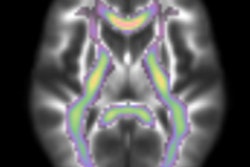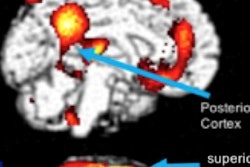Transcranial Doppler ultrasound can show changes in brain blood flow caused by a concussion, potentially offering an objective method for determining whether or not a patient has experienced a mild brain injury, according to researchers from the University of British Columbia.
A team led by medical student and doctoral candidate Alexander Wright used ultrasound equipment to measure the speed of brain blood flow in 179 junior-level athletes prior to the athletic season. Athletes who sustained concussions during the season also received the testing again at three time points after the injury.
In their paper published online August 4 in the Journal of Neurotrauma, the researchers shared data showing a clear link between the brain injury and changes to the brain's blood flow response that were related to how long the athletes were out of competition.
The technique may one day be part of a battery of tests for assessing concussions in athletes, perhaps even helping to determine what degree and type of concussion an athlete had, the researchers said. Other tests could include blood biomarker detection and advanced neuroimaging techniques, which are also being developed at the university.
"The conversation over the past number of years suggests 'concussion' is not a single clinical entity, but rather a spectrum of slightly different brain injuries, all of which are difficult to detect," Wright said in a statement. "By developing some of these tests, we've started to better understand how complex concussions really are."
The hope is to assemble a series of tests that will help objectively diagnose the injury, provide some prognostic value, and give clinicians an idea of how long brain healing might take, according to the researchers.



















